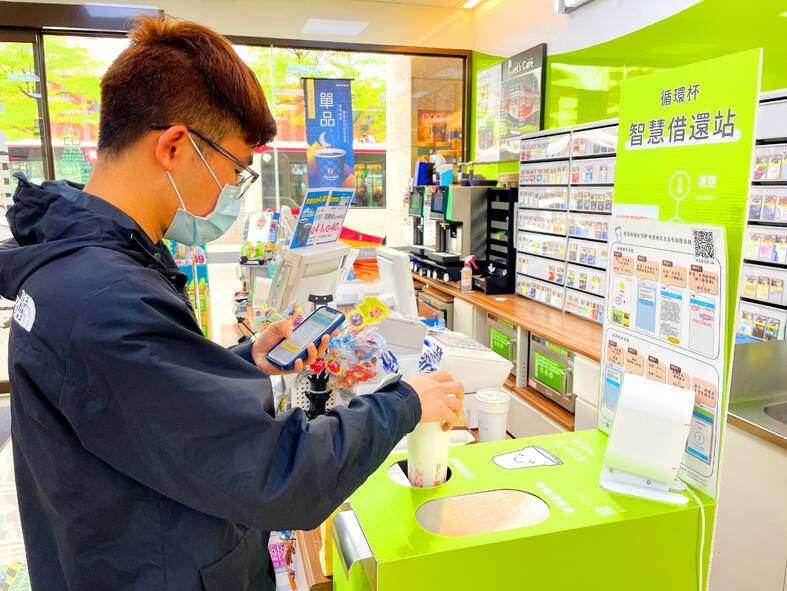A number of new policies are to take effect on Sunday, including the age of majority being lowered to 18, an increase in the minimum wage, adjustments to the labor insurance and National Health Insurance salary grading tables, the launch of a lay judge system and extended voluntary military service training.
The age of majority is to be lowered from 20 to 18, meaning 18-year-olds are to be allowed to sign contracts, buy smartphones, rent apartments and open bank accounts, and cannot use “have not obtained parental consent” as an excuse to claim the contracts are invalid.
The minimum age of marriage for men and women is also to be set at 18, but as the referendum on lowering the voting age from 20 to 18 did not pass during the local elections last month, the minimum voting age is still 20.

Photo: Wei Chin-yun, Taipei Times
The minimum wage next year is to be increased to NT$26,400 (US$860) per month and NT$176 per hour, which is expected to benefit about 2.33 million workers.
Level 1 of the Labor Insurance Insured Salary Grading Table is to be adjusted to the minimum wage, which is expected to benefit about 3.09 million workers. Level 1 of the Labor Occupational Accident Insurance Salary Grading Table is also to be adjusted to NT$26,400, likely affecting about 4.12 million people.
Level 1 of the National Health Insurance Income Grading Table is also to be adjusted to NT$26,400, affecting about 7.93 million people, the Ministry of Health and Welfare said, adding that each worker would need to pay an additional NT$17 to NT$78 toward their monthly premium, adding up to about NT$5.6 billion per year for the entire nation.
The labor insurance premium rate is to be raised to 11 percent.
As for the new lay judge system, Taiwanese who are 23 or older, have completed their compulsory education and have never been convicted of a crime are to be eligible to serve as lay judges, and operate in conjunction with professional judges on cases in which intentional criminal acts have resulted in death or in which a defendant is facing at least 10 years in prison.
About 120,000 people are to be contacted to be lay judges next year.
To boost combat preparedness, the voluntary military service boot camp for new recruits is to be extended from five weeks to eight, and recruits are to be required to fire up to 160 rounds in live-fire exercises, up from 86 rounds.
To reduce plastic use, the Environmental Protection Agency is to require at least 5 percent of the branches of convenience store chains and fast-food restaurants to provide reusable cup rental services.
Subsidies of up to NT$15,000 are to be offered to drivers who retire their old gasoline-powered vehicle for a new electric or hybrid vehicle.
Meanwhile, the insecticide Chlorpyrifos is to be banned, as exposure to it has been linked to damage caused to the developing brains of infants and children.
Migrant Workers One-Stop Service centers are also to be launched, while migrant workers are to be allowed to practice self-disease prevention for COVID-19 at their employer’s home in a room equipped with its own bathroom, and can work if they test negative for the virus daily. This is expected to benefit 50,000 migrant domestic workers and their employees.
Additional reporting by Lee Ching-hui and Aaron Tu

Authorities have detained three former Taiwan Semiconductor Manufacturing Co (TMSC, 台積電) employees on suspicion of compromising classified technology used in making 2-nanometer chips, the Taiwan High Prosecutors’ Office said yesterday. Prosecutors are holding a former TSMC engineer surnamed Chen (陳) and two recently sacked TSMC engineers, including one person surnamed Wu (吳) in detention with restricted communication, following an investigation launched on July 25, a statement said. The announcement came a day after Nikkei Asia reported on the technology theft in an exclusive story, saying TSMC had fired two workers for contravening data rules on advanced chipmaking technology. Two-nanometer wafers are the most

Tsunami waves were possible in three areas of Kamchatka in Russia’s Far East, the Russian Ministry for Emergency Services said yesterday after a magnitude 7.0 earthquake hit the nearby Kuril Islands. “The expected wave heights are low, but you must still move away from the shore,” the ministry said on the Telegram messaging app, after the latest seismic activity in the area. However, the Pacific Tsunami Warning System in Hawaii said there was no tsunami warning after the quake. The Russian tsunami alert was later canceled. Overnight, the Krasheninnikov volcano in Kamchatka erupted for the first time in 600 years, Russia’s RIA

CHINA’s BULLYING: The former British prime minister said that he believes ‘Taiwan can and will’ protect its freedom and democracy, as its people are lovers of liberty Former British prime minister Boris Johnson yesterday said Western nations should have the courage to stand with and deepen their economic partnerships with Taiwan in the face of China’s intensified pressure. He made the remarks at the ninth Ketagalan Forum: 2025 Indo-Pacific Security Dialogue hosted by the Ministry of Foreign Affairs and the Prospect Foundation in Taipei. Johnson, who is visiting Taiwan for the first time, said he had seen Taiwan’s coastline on a screen on his indoor bicycle, but wanted to learn more about the nation, including its artificial intelligence (AI) development, the key technology of the 21st century. Calling himself an

South Korea yesterday said that it was removing loudspeakers used to blare K-pop and news reports to North Korea, as the new administration in Seoul tries to ease tensions with its bellicose neighbor. The nations, still technically at war, had already halted propaganda broadcasts along the demilitarized zone, Seoul’s military said in June after the election of South Korean President Lee Jae-myung. It said in June that Pyongyang stopped transmitting bizarre, unsettling noises along the border that had become a major nuisance for South Korean residents, a day after South Korea’s loudspeakers fell silent. “Starting today, the military has begun removing the loudspeakers,”